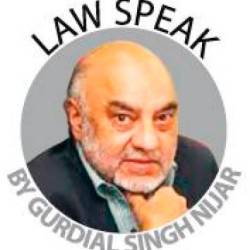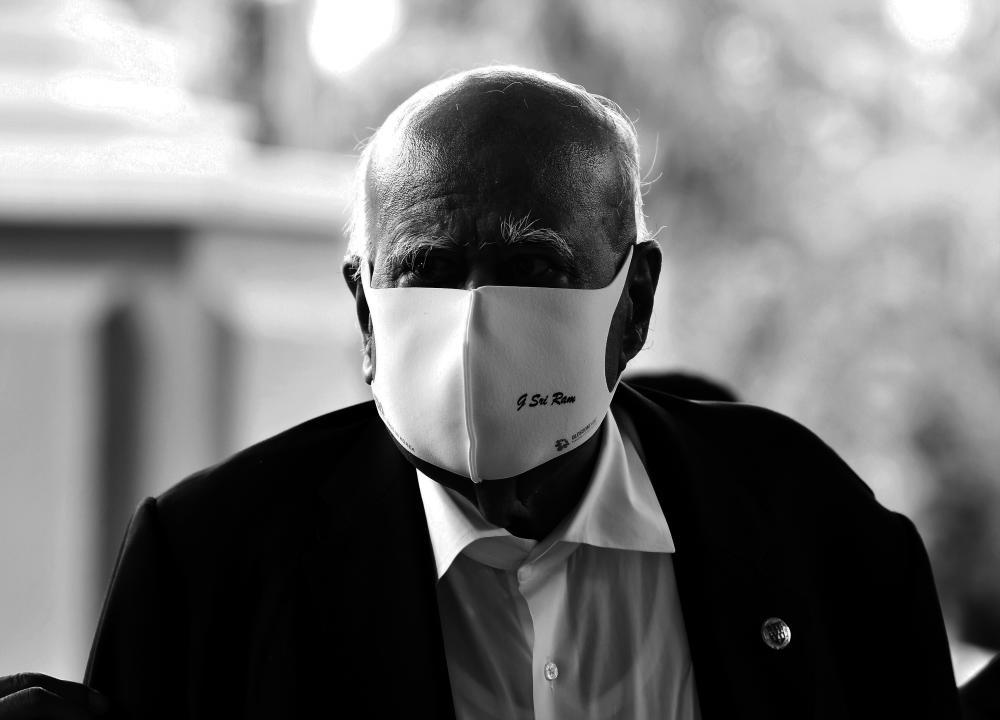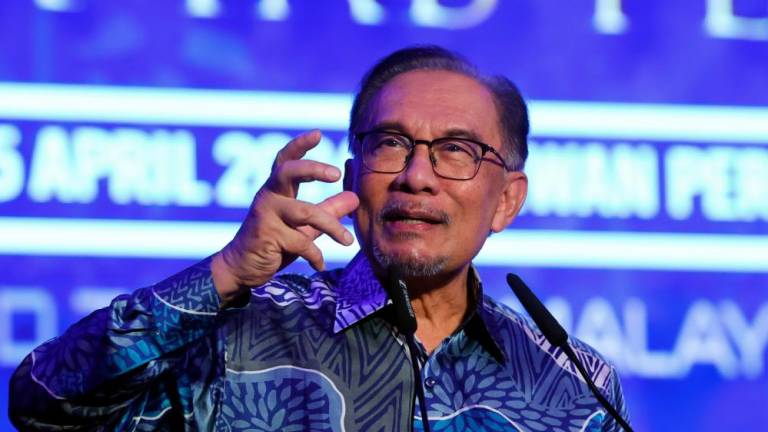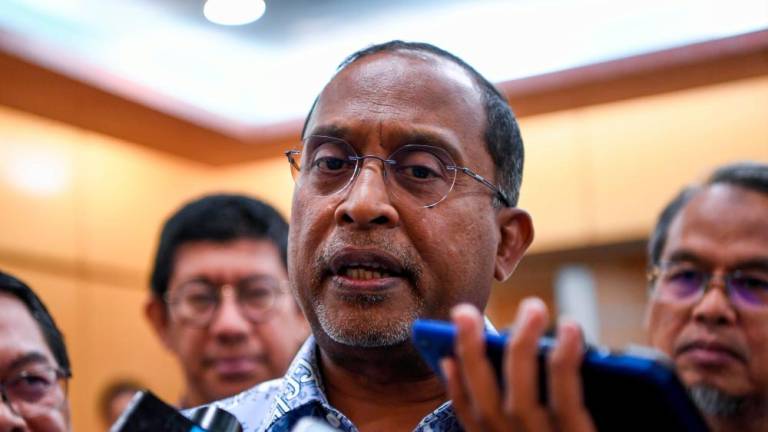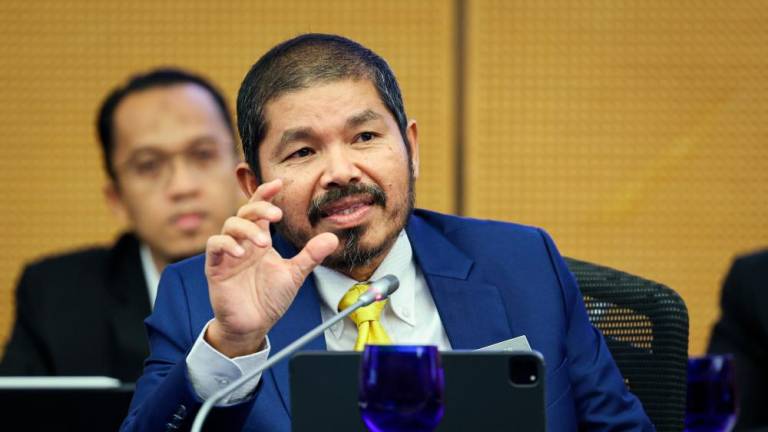THE death of Datuk Seri Gopal Sri Ram (pix), at the age of 79, marks the passing of one who, paraphrasing Shakespeare, bestrode the legal world as a colossus, as a lawyer and as a judge.
In his role as a judge, he loomed large as a major judicial figure shaping the law in conformity with his view of dispensing justice.
A rare achievement was his direct appointment from private practice to the Court of Appeal in 1994 and he plunged almost immediately into pushing the boundaries of the law succeeding quite superbly in the field of administrative and constitutional law as is the focus of this article.
His trail-blazing in this context was first noticed when he held that the right-to-life guarantee of the Federal Constitution encompassed the right to livelihood and a clean and healthy environment. “Nay, the wherewithal of human existence”: Tan Teck Seng.
He later extended the right of the Orang Asli to their way of life and their entire forest-based life support system: Kajing Tubek.
He tempered the doctrine of the absolute freedom of contract and held that it must yield to the higher claims for social justice: Syarikat Kenderaan Melayu Kelantan Bhd v Transport Workers’ Union.
In this case, he decisively abolished the artificial distinction between “mere” errors of law on the face of the record and errors that went to the jurisdiction.
Only the latter was amenable to judicial review. Rather boldly, he tortured precedent and held that no decision-making authority has jurisdiction to commit any error of law, for then he exceeds his jurisdiction.
Perhaps, his most distinctive mark of greatness was in reviving the basic structure doctrine as a clear remit of the judiciary’s constitutional mandate under the Federal Constitution: Kok Wah Kuan v Public Prosecutor.
Sri Ram marshalled scholarship, courage and the sense of opportunity to restore the credit of the fundamental posits of the constitution in this respect when the chance came his way.
He was overruled by the Federal Court. But a later Federal Court reinstated the basic structure doctrine: there are certain features of the Federal Constitution that cannot be violated by any act of Parliament: Semenyih Jaya.
Yet another significant mark: the introduction of the proportionality principle in assessing the validity of an administrative decision.
Strike One in favour of fundamental freedoms and his disdain for interference with an individual’s rights.
I knew he had it in him when, in his early lawyering years, we together challenged the ISA unlawful detention cases arising from Operation Lalang in 1987.
Interestingly, Sri Ram preceded the UK apex court which was merely contemplating its possible adoption in the future: CCSU v Minister of the Civil Service.
Until he left the bench as a Federal Court judge in 2010, he moulded the law to his perceptions of private and public morality.
Reaching unhesitatingly, to precedents near and far, including Indian Supreme Court decisions (establishing public interest litigation), often couching his pronouncements that appealed to widespread common sense, or at least to conventional wisdom, such as the fundamental right of citizens to access justice (that is, to courts).
His prose was simple and comprehensible, expressing complex concepts that sometimes lawyers struggled to articulate in crystalline terms.
He shone at the Bar before and after becoming a judge.
You just could not keep him away from the courts, even taking on more than one case in a higher court in a single day much to the chagrin of opposing lawyers.
In his early years, he was a walking dictionary, with an uncanny ability to recite case citations from memory – a blessing when online access was non-existent.
Until the end, this compendious memory never deserted him.
At hearings and in judgments he would refer to authorities which counsel had not produced, sometimes, unhappily for lawyers, even predicating his decision on them.
One sitting judge has described the limits to his tolerance, on the bench he did not suffer the indolent or the unprepared lawyer.
His scholarly acumen emerged in his chief editorship of the White Book, a rich resource as a commentary on our rules of court.
He never looked at the interpretation of statutes with a myopic vision.
The Constitution must be interpreted generously like a prism, he said.
The light shone through it, revealing its constituent submerged fundamental rights’ colours.
Howsoever Sri Ram is adjudged, it is difficult not to conclude that he made a significant difference in the development of legal architecture whether as a judge, a lawyer, or simply as a towering personality, prompting the Chief Justice’s tribute to his tremendous contribution to the judiciary throughout his tenure as a judge at the Court of Appeal and the Federal Court.
Sri Ram was my contemporary, though much more in years.
Even in private conversations, he displayed a penetrating mind and he loved to regale listeners to stories of renowned (and not so renowned) personalities of the Bar.
The last of which was at a small dinner evening on Dec 30, 2022.
As he heaved into his red Rolls Royce, we parted with a commitment to meeting up soon for a coffee chat. Alas! It was not to be.
Farewell, my friend and rest in peace.
Gurdial Singh Nijar, a former law professor, is the president of Hakam, the National Human Rights Society. Comments: letters@thesundaily.com



